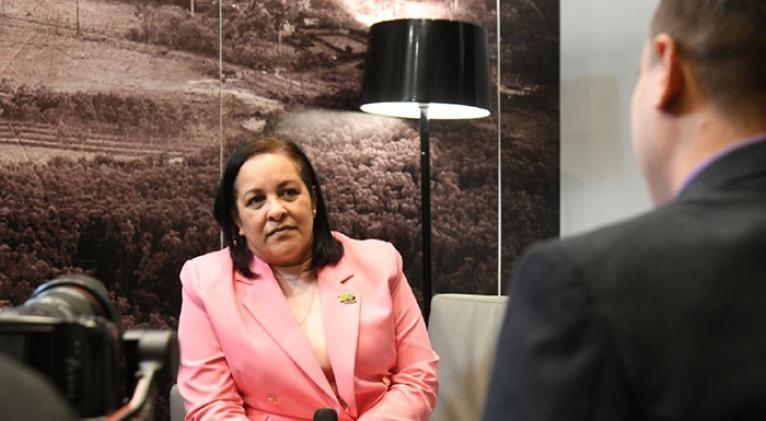Youth at the Center of Digital Transformation in Cuba (Part II)
especiales

It may seem like a natural call, but in Cuba, the leadership of young people in digital transformation is part of the will and intention of the authorities. On the role institutions must play in empowering youth in the digital era, the Minister of Communications, Mayra Arevich Marín, shared her perspective:
"One of our responsibilities, based on the missions of the Ministry, is to advance the digital transformation process, where young people play a very important role. We are in an era of growing and sustained technological development, and it is young people who will drive the change in new technologies that will contribute to the well-being of citizens and improve the country's economy. Therefore, for us, creating an inclusive environment, free of discrimination, with equity and gender inclusion, is very important. We must consider their opinions, preparation, and the culture that allows young people, through their training, to face the risks associated with digital transformation."
However, this process is deeply rooted in the island's history, as Mayra Arevich pointed out: "In 2015, we initiated the informatization of society, aiming to develop technologies and familiarize our population with their use. However, we soon recognized that we had entered a new phase: one that required placing the citizen at the core, ensuring that all technological advancements were geared toward enhancing people's quality of life. This realization led us to propose the digital transformation policy, which builds on the strategic foundations of the informatization process but shifts the focus toward digitalization. For instance, we now emphasize the importance of a regulatory framework."
"Cuba has not approached this process from a blank slate regarding its regulatory framework. We have worked to adapt and modernize it in response to emerging technologies and the growing digital culture among the population. However, we already have a foundational regulatory structure in place, which enables us to effectively implement the policy."
The Minister also commented on some of the fundamental pillars that underpin Cuba's digital transformation policy:
"The infrastructure axis is crucial for Cuba, as it ensures access to digital services. During this summit, young participants have emphasized the importance of accessibility. For instance, today we can highlight that eight million Cubans connect to the Internet through mobile devices, with over 70% Internet coverage across the country. We even exceed the global average, with an average consumption of 10 GB per user. These figures reflect the progress we’ve made in accessibility in recent years. Despite the economic challenges our country faces and the obstacles encountered by our telecommunications provider, ETECSA, we have prioritized using our resources more efficiently. In this regard, it’s essential to acknowledge the dedication and talent of our young professionals in telecommunications and IT. Their efforts have enabled us, with the resources available, to meet the growing traffic demands that Cubans rely on daily in their lives."
"We have a digital economy. A country cannot think about digital transformation if it does not have processes that are fully digital. We are talking about digital signatures, digital payment platforms, and digital document management systems that eliminate paper use, reduce bureaucracy, and bring all the procedures the population needs closer to digital platforms. Soon, we will launch the Sovereignty Portal, which will centralize all procedures and services for the population, gradually incorporating them so that Cubans can have all their administrative requests stored on this platform. This will reduce the need to repeatedly request documents from the public, as we will use the data we already have through digitalization to respond to their demands.
"Another very important axis is digital culture. This is a cultural process because we all must embrace it —those who drive digital transformation and those who participate in it. Education and the preparation of young people to take on new technologies are also part of this. We have foundations from the Revolution that have allowed us to take faster steps in understanding new technologies compared to other countries. We have the 36-year-old Joven Club project, which was a mission of our Commander to bring computing and digital transformation closer to the people. Today, the Joven Club and the Union of Cuban Computer Scientists continue this mission: bringing digital skills to the population without discrimination. Children, young people, the elderly, and people with disabilities are all included.
"Another crucial axis is cybersecurity. A country cannot undergo digital transformation without working in a secure environment. We still have much to do in this area, especially to ensure that the population understands the risks and uses digital services responsibly. Sometimes, due to negligence or lack of knowledge, we harm ourselves, others, or economic processes. We have always shared a premise: in Cuba, navigation must be ethical, secure, and for the benefit of people's intellectual development. That is why we also have the content axis, as it is very important to integrate technology with content to achieve the results we truly want."
Translated by Sergio A. Paneque Díaz / CubaSí Translation Staff














Add new comment